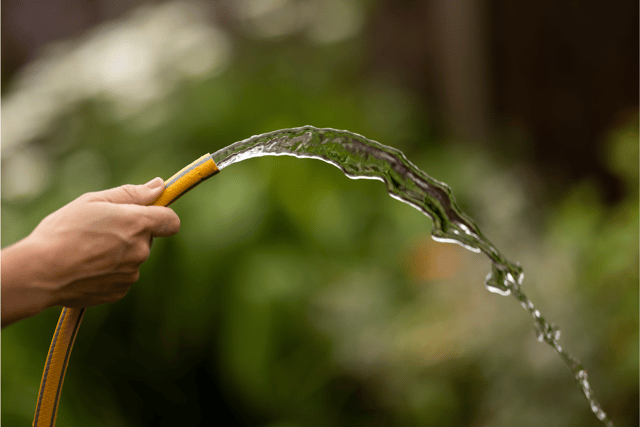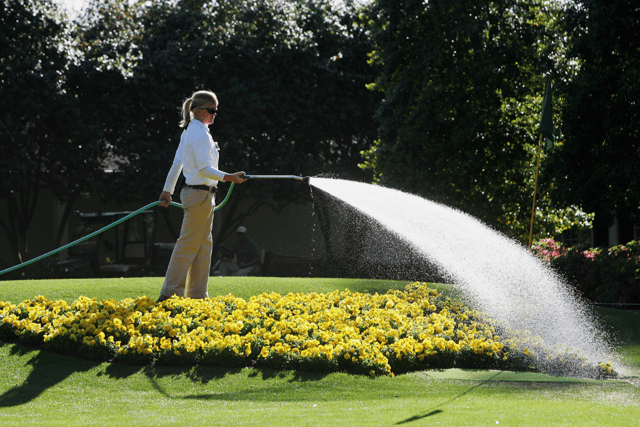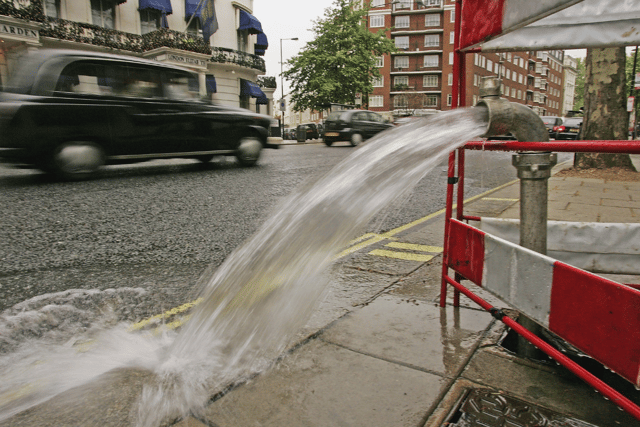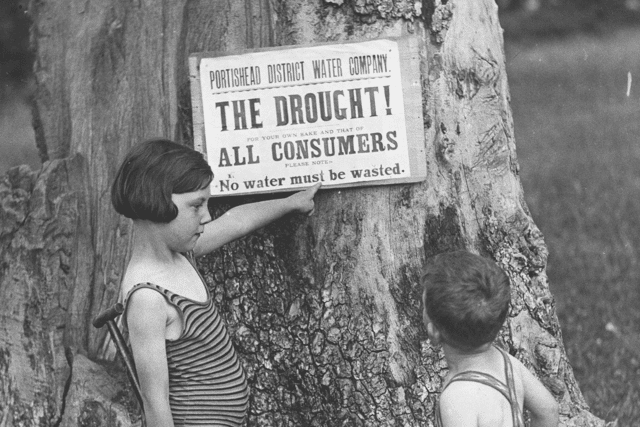Bristol weather 2022: will there be a hosepipe ban in Bristol, what does Bristol Water say?
and live on Freeview channel 276
Hospeipe bans are being administered across the UK as parts of England are offically declared to be in a drought. BristolWater have announced their own measures.
When a country is experiencing particularly hot weather, hosepipe bans - typically administered by local water companies - are put in place to reduce the risk of extreme drought and water shortages.
Advertisement
Hide AdAdvertisement
Hide AdThe UK has recently experienced its hottest summer to date with record-breaking temperatures recorded across the country. For Bristol, 36.9℃ was enough to blow the roof off of a record which had stood since 2003.
Reservoirs across the country are below average as summer’s extreme heat poses a real danger to the country’s water supply.
When speaking on the hosepipe ban in the south of England, South East Water explained “this has been a time of extreme weather conditions across the UK.”
“Official figures show this is the driest July on record since 1935 and the period between November 2021 and July 2022 has been the driest eight-month stint since 1976.”
Advertisement
Hide AdAdvertisement
Hide AdDue to the extreme weather of July and the amber weather warnings brought on by August’s heatwave, the whole of the South-West region has been declared in official drought. We’ve asked BristolWater whether this effects water restrictions in the Bristol area.
Where are the hosepipe bans currently in effect?


Hampshire and the Isle of White are the first areas in the UK where households will face a hosepipe ban, with Southern Water restricting hosepipe activity at 17:00 BST on August 5.
After this is implemented, South East Water will roll restrictions out to Kent and Sussex from August 12 until further notice.
Elsewhere, Manx Utilities imposed a strict hosepipe ban across the Isle of Man on July 29. If a resident of the Isle of Man is caught using a garden hosepipe, sprinkler or pressure washer, they can be fined a maximum of £2000.
Advertisement
Hide AdAdvertisement
Hide AdHowever, there is a commercial exception to this, such as car washes and window cleaners.
Welsh Water became the third company to announce restrictions, with hosepipe bans expected to come in August 19. The hosepipe ban will cover parts of South Wales.
Thames Water have announced a hosepipe ban but haven’t given any further details on when this will take place.
Yorkshire water are the latest company to announce a hosepipe ban with parts of the region recording lowest rainfall since records began. A hosepipe ban is exected to come into effect on August 26.
Will there be a hosepipe ban in Bristol?


Advertisement
Hide AdAdvertisement
Hide AdBristol Water is responsible for water supply services across Bristol. The organisation has been in operation for 175 years.
On July 28, Bristol Water announced that - despite rainfall this year being below average - they do not expect to impose “hosepipe bans or any other water supply restrictions during 2022”.
The company proposes that it will continue its “dry weather management plan” and explore other options in efforts to help recover “reservoir levels over the winter recharge period”.
On August 12, The National Drought Group met with local water companies and figures from the Environmental Agency. In this meeting it was declared that parts of the South West region are now in drought status.
BristolWater did not attend this meeting.


Advertisement
Hide AdAdvertisement
Hide AdA spokesperson for BristolWater said, “We do not anticipate the need for any hosepipe bans or water supply restrictions in 2022 due to our current reservoir storage and demand levels.
“We are carefully monitoring the situation due to below average rainfall this year and lower reservoir levels compared to normal. As a result, we are balancing our stored resources in a way that will help us manage supplies during the drier conditions we are experiencing.
“It helps that we’re recognised as a top performer in the industry when it comes to reducing leakage in our water network, which is thanks to our hard-working staff who detect leaks, high-tech monitoring, and schemes replacing old water mains. Switching more of our customers to water meters is another effective means of tracing and reducing water wastage.”
Residents aren’t off the hook completely, Bristol Water has provided a short list of things you can do to prevent the need for further measure
- Use rainwater from a water butt and/or a watering can to water the garden
- Water the garden in the morning or evening when it’s coolest
- Don’t water your lawn, it will bounce back in the rain
- Take short showers to cool down, not baths
- If possible, put full dishwashers and washing machines on overnight – this helps manage
- demand at peak times
Advertisement
Hide AdAdvertisement
Hide AdThe tips above and further advice can be found on the Bristol Water website
Has Bristol ever had a hosepipe ban before?


The last hosepipe ban in the region was 1975, which lasted till 1976. According to Bristol Water, hose pipe bans are extremely rare in the south-west:
“The drought was caused by a dry summer in 1975, followed by an arid 16 months of low rainfall. The combination of dryness and consistently high temperatures led to a ban on non-essential use, which went further than just a ban on hosepipes,” it reads.
“The situation was so serious that the government appointed a Cabinet Drought Committee, who advised the public that household water consumption should be reduced by 50%”.
Comment Guidelines
National World encourages reader discussion on our stories. User feedback, insights and back-and-forth exchanges add a rich layer of context to reporting. Please review our Community Guidelines before commenting.
